From the Chicago Reader (December 5, 2003); also reprinted in my collection Goodbye Cinema, Hello Cinephilia. I’m delighted to report that Wichita became available on DVD, and in the correct CinemaScope format, in 2009. — J.R.
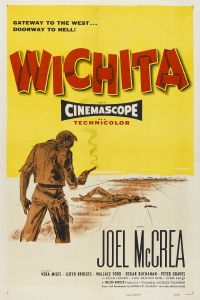
Wichita
**** (Masterpiece)
Directed by Jacques Tourneur
Written by Daniel B. Ullman
With Joel McCrea, Vera Miles, Lloyd Bridges, Walter Coy, Wallace Ford, Edgar Buchanan, Peter Graves, Jack Elam, and Mae Clarke.
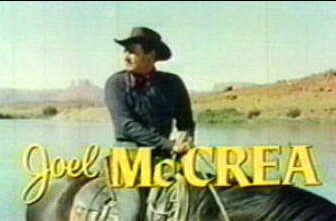
One reason why Jacques Tourneur (1904-1977) remains a major but neglected Hollywood filmmaker is that elusiveness is at the core of his art. A director of disquiet, absence, and unsettling nocturnal atmospheres whose characters tend to be mysteries to themselves as well as to us, he dwells in uncertainties and ambiguities even when he appears to be studiously following genre conventions. In other words, his brilliance isn’t often apparent because he tends to stay in the shadows. As with Carl Dreyer, it took me years to fully appreciate the textures of his work, but now I can’t get enough of his films.
A case in point is Wichita (1955), Tourneur’s first film in CinemaScope and possibly the most traditional of all his westerns, showing in LaSalle Bank’s classic film series this Saturday.
Read more
From the Chicago Reader (September 26, 2003). — J.R.

Anything Else
* (Has redeeming facet)
Directed and written by Woody Allen
With Jason Biggs, Christina Ricci, Allen, Stockard Channing, Danny DeVito, Jimmy Fallon, and Diana Krall.
The least valuable criticism we have of Charlie Chaplin maintains that he was a tremendously gifted comic until he started taking himself too seriously. My quarrel starts with the underlying assumption that the greatness of any comic artist can be measured with a laugh meter. I’ll readily grant that there’s more to laugh at in The Circus (1928) than in Monsieur Verdoux (1947), Limelight (1952), or A King in New York (1957), but that doesn’t make it a better movie. The other three offer some of the richest experiences in the history of cinema, and if quality of emotion counts for more than quantity, especially in comic works, they’re remarkable for their sharpness, depth, and complexity. They are all narcissistic reveries, yet none of them can be reduced to Chaplin assessing his own persona — though this is undoubtedly one reason they’re of interest.
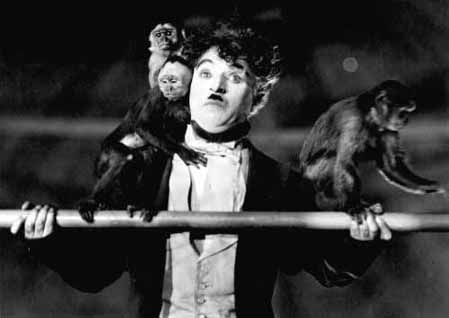
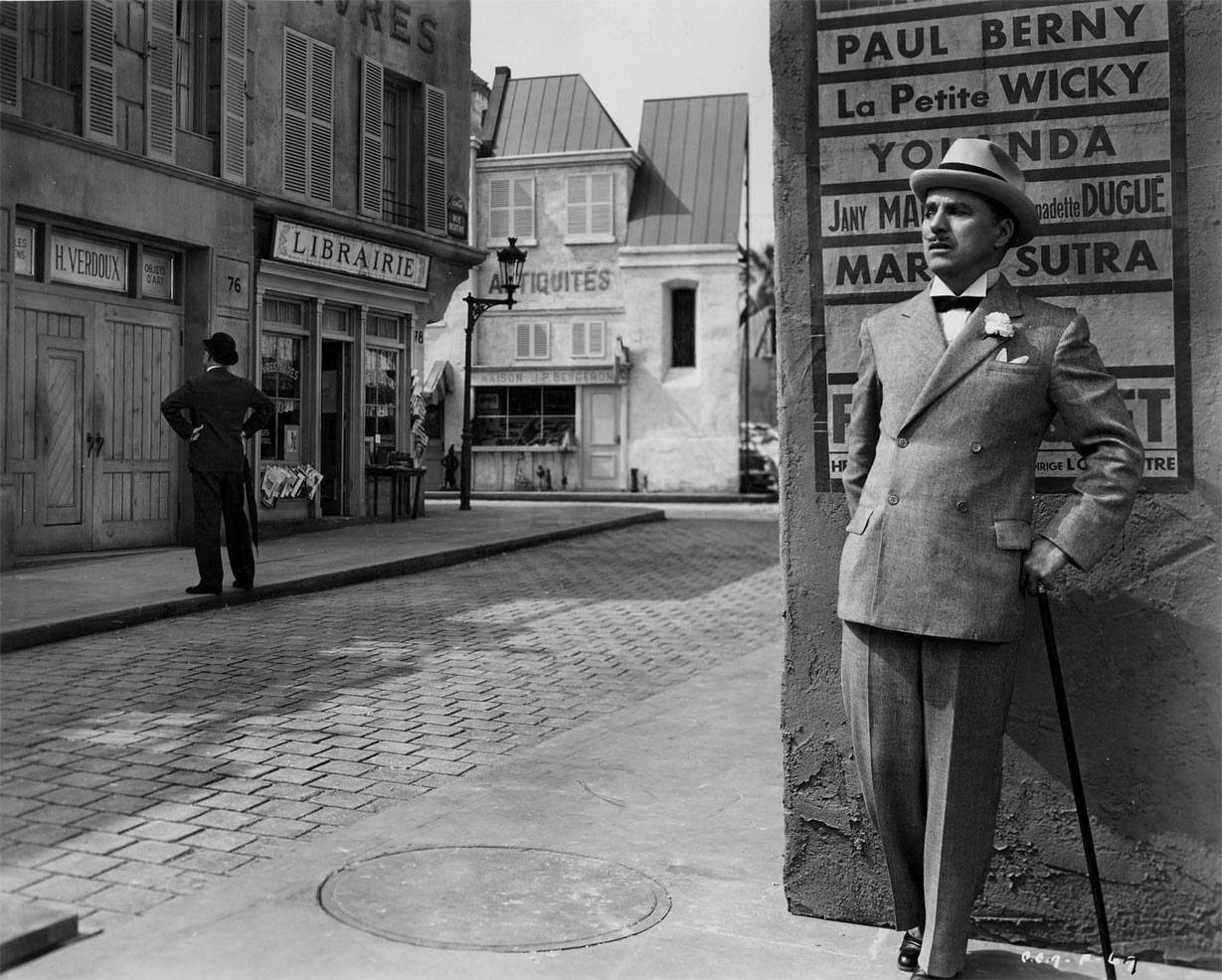
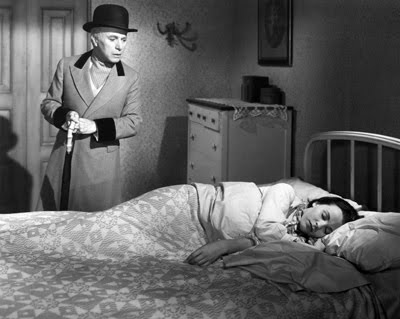

I’d be prepared to make a similar case for the virtually impossible to find last feature of Preston Sturges, an independent effort known in French as Les carnets du Major Thompson and in English as The French They Are a Funny Race (1955). Read more
From the August 22, 2003 Chicago Reader. — J.R.
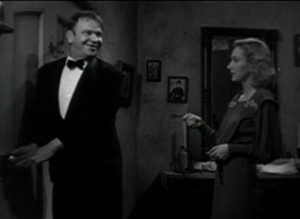
The screenwriter hero of Barton Fink is assigned to script a Wallace Beery wrestling picture: this 1932 feature — directed by John Ford and scripted by Edmund Goulding, Moss Hart, and an uncredited William Faulkner, among others — is the only real-life movie matching that description. Beery, a good-hearted dope working as a waiter in a German beer garden, falls for an American ex-convict (Karen Morley) linked to a gangster (Ricardo Cortez). They delude and exploit him even after he marries Morley, becomes a big-time wrestling champ, and moves with her to the U.S. Ford was still under the spell of F.W. Murnau’s Sunrise (1928) when asked to take over this project at MGM, and some traces of German expressionism linger in his pictorial style. He wrests a lot of feeling out of Beery’s cheerful dim-wittedness, making his muddle seem almost enlightened and avoiding the masochism an Emil Jannings would have brought to the part. The strong secondary cast includes Jean Hersholt, Vince Barnett, and Ward Bond. 95 min. (JR)
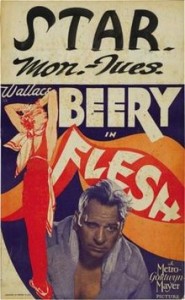 Read more
Read more
Here are five more of the 40-odd short pieces I wrote for Chris Fujiwara’s excellent, 800-page volume Defining Moments in Movies (London: Cassell, 2007). — J.R.

Scene
1957 / Paths of Glory – Timothy Carey kills a cockroach.
U.S. Director: Stanley Kubrick. Cast: Ralph Meeker, Timothy Carey.
Why It’s Key: A quintessential character actor achieves his apotheosis when his character kills a bug.
To cover up his vain blunders, a French general (George Macready) in World War I orders three of his soldiers (Ralph Meeker, Joe Turkel, Timothy Carey), chosen almost at random, to be court-martialed and then shot by a firing squad for dereliction of duty, as an example to their fellow soldiers. When their last meal is brought to them, they can mainly only talk desperately about futile plans for escape and the hopelessness of their plight. Then Corporal Paris (Meeker) looks down at a cockroach crawling across the table and says, “See that cockroach? Tomorrow morning, we’ll be dead and it’ll be alive. It’ll have more contact with my wife and child than I will. I’ll be nothing, and it’ll be alive.” Ferrol smashes the cockroach with his fist and says, almost dreamily, “Now you got the edge on him.” Read more
Written for Volume 34, Number 3, Issue No 135 of the Winnipeg-based Canadian arts journal Border Crossings in Fall 2015 (see below). — J.R.

I’m frequently troubled these days by the growing absence of global perspectives in what passes for news and other forms of mainstream discourse in the U.S. — the perpetually shrinking definitions of what we mean by ‘we’. A good many of the congealed stereotypes of foreign cultures that crop up in both Hollywood blockbusters and Internet chatter — ranging from the notion that ‘the French’ are crazy about Jerry Lewis to the pop images we still have of Latinos, Italians, Russians, Arabs, and Asians in SF blockbusters whenever ‘the world’ has to be represented — can paradoxically be traced back to the 50s and 60s, when the Cold War and all of its most rigid either/or assumptions were still in force. One might suppose that the combined resources of the Internet and digital viewing would widen our cinematic and other cultural reference points rather than shrink them. But the tendency of even respectable, adult media pundits to speak about ‘good guys’ and ‘bad guys’ in the world at large suggests a metaphysics tailored to the dimensions of a Star Wars saga or a video game, where the cultural givens plunge back even further into the mythical past: Flash Gordon serials and Triumph of the Will from the mid-1930s, Roy Rogers Westerns and airborne World War 2 epics of the mid-1940s. Read more
This is the second of my bimonthly columns written for Cahiers du Cinéma España, which ran in their third (July-August 2007) issue. It seems fitting to post it three years later because I’m back at the same festival again, serving again on the FIPRESCI jury. It’s hard not to feel an immense sadness about the intervening death (by murder, in Manila, along with his Slovenian partner Nika Bohinc) of Alexis Tioseco, my fellow juror, who can be seen here in the first photo, on the far right. This was most likely taken by Olaf Möller, one of the festival’s programmers, who can be seen in the second photo below, taken by Alexis.
Amit Dutta, incidentally, whose Kramasha won our FIPRESCI prize three years ago, will be attending the festival for the first time this year, and presenting a program tomorrow night. (Update, a day later: Unfortunately, Dutta had to cancel his visit due to health reasons, but two programs of his films will still be presented.) — J.R.
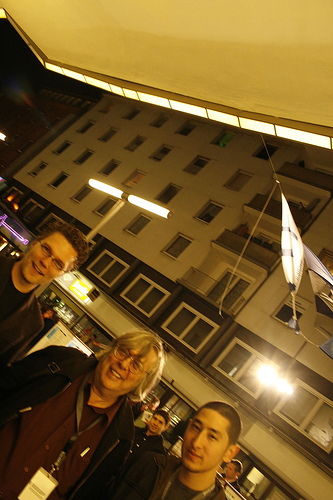
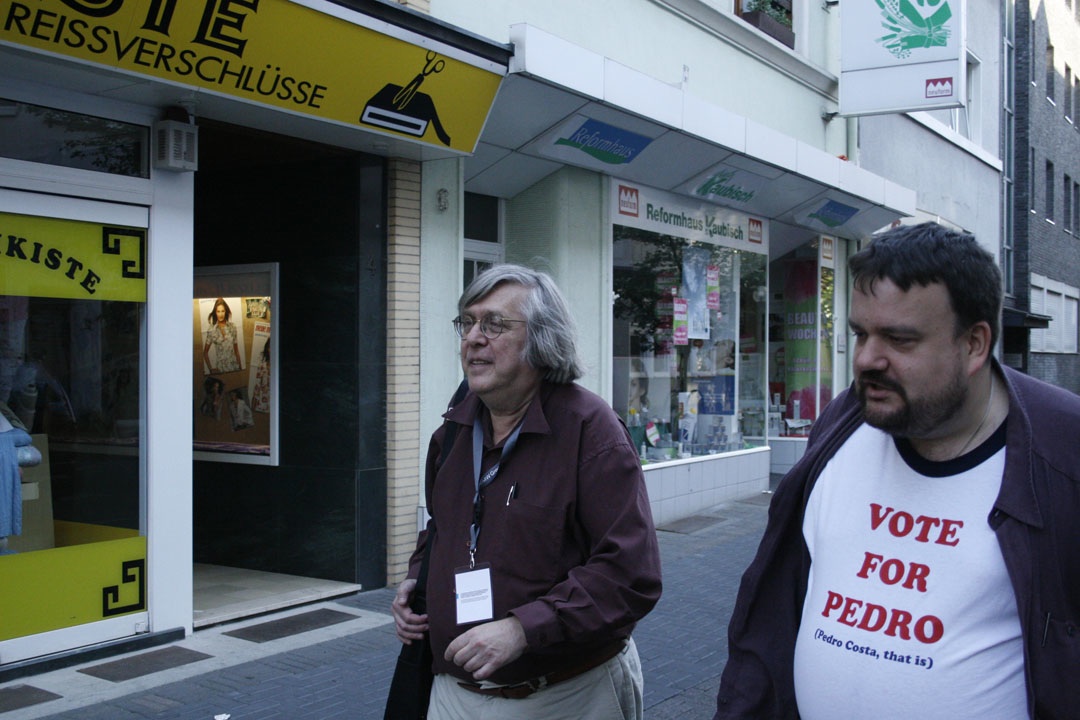
The prospect of attending a festival of short films has always seemed difficult to me because of the number of aesthetic gear changes involved in moving from one film to the next. Read more
A Chicago Reader blog post, dated Saturday, December 1, 2007, 1:46 PM. — J.R.
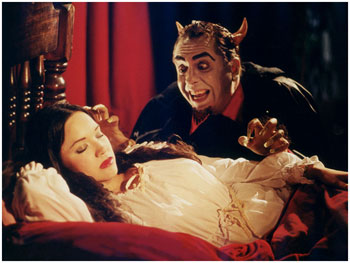
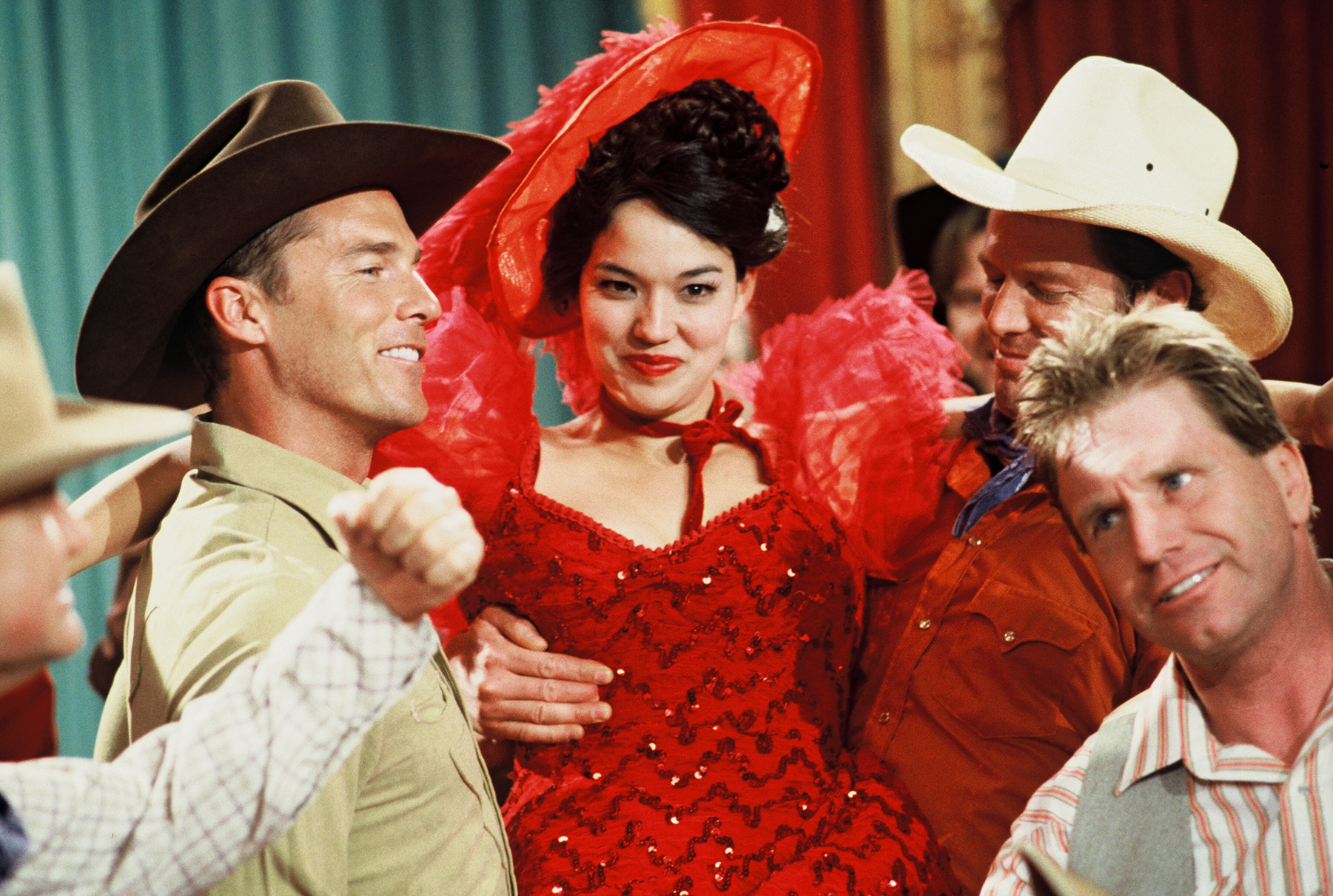
Two of the more interesting programs that I saw at the just-concluded Torino Film Festival consisted of films by LA filmmaker and Cal Arts alumnus Anna Biller, who writes, directs, stars in, designs the costumes and sets for, and sometimes helps to perform the music in her films, none of which has a distributor at this point. Her first feature, Viva (2006), is a pastiche of 1970s soft-core porn, theoretically reconfigured to support a woman’s viewpoint — an interesting curiosity, but a bit long for my taste (at 120 minutes, longer than any ’70s soft-core flick that I’m aware of), and perhaps not sufficiently aware of its own grotesqueness to qualify as either a critical commentary on its elected genre or as a wholly convincing entry in that genre.
I found her program of earlier 16mm shorts more interesting: Three Examples of Myself as Queen (1994), The Hypnotist (2001 — her only film in which she doesn’t act and which she didn’t write herself, written instead by her partner and frequent collaborator Jared Sanford), and, above all, A Visit from the Incubus (2001, see photos above), a 27-minute horror-western-musical that I regard as her masterpiece.
Read more
Posted on the Chicago Reader‘s blog, Bleader. — J.R.
Spike Lee’s best movie?

If my 20 best list for the past year could have been based purely on artistic criteria rather than on packaging and marketing categories, Spike Lee’s
When the Levees Broke: A Requiem in Four Acts — which premiered on HBO on two consecutive nights in late August, a year after the tragedy in New Orleans—would have belonged somewhere near the top. Although I missed the third act at the time, I’ve recently watched the whole thing on the recently released
three-disc DVD box set — which adds a fifth act called “Next Movement” as well as a slide show of photographs called “Water Is Rising,” accompanied (like the documentary itself) by a Terence Blanchard jazz score—and the experience as a whole is so powerful that I’m tempted to call this over four-hour documentary Lee’s masterpiece to date. For its remarkable cast of characters, its comprehensive and even epic treatment of a major catastrophe in all its multidimensional aspects, for its political and ethical clarity (as well as its focused and wholly justifiable anger), and above all, for its soul, it shows a maturity and balance that may be unparalleled in Lee’s work.
From the Chicago Reader (March 16, 2007), slightly corrected (in terms of title and running time).. — J.R.
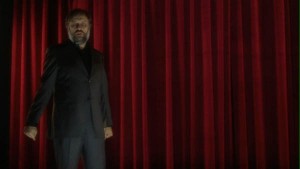
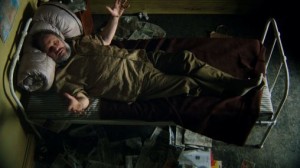
If Daffy Duck ever became a film critic informed by Lacanian psychoanalysis, this three-part English entertainment (2006) by Sophie Fiennes would surely qualify as his Duck Amuck. Theorist Slavoj Zizek, inside beautifully constructed sets matching various films’ locations, lectures provocatively and dynamically about 43 screen classics, often sputtering like Daffy himself. Hitchcock and Lynch are favored, but among the many other filmmakers considered are Coppola, Lang, Powell, and Tarkovsky. Zizek is especially sharp about manifestations of the maternal superego in Psycho and The Birds, maverick fists in Dr. Strangelove and Fight Club, and voices in The Great Dictator and The Exorcist. 143 min. (JR)
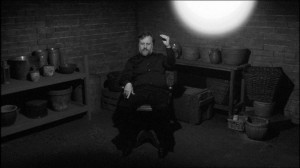
 Read more
Read more
Commissioned by Sight and Sound, and written for their August 2006 issue. — J.R.
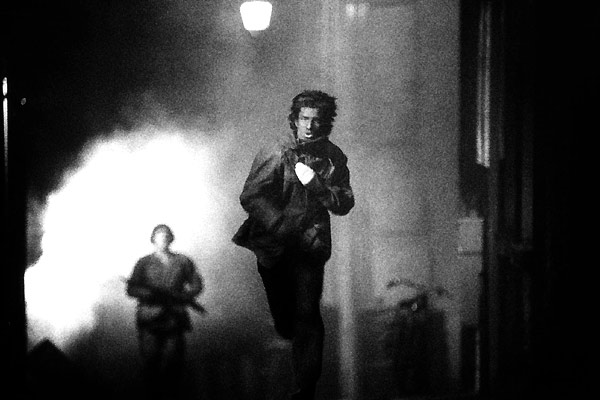
Considering how much admiration I have for the films of Philippe Garrel, it’s hard to avoid some feelings of guilt and consternation for not liking them more — especially when I consider how much they mean to others whose tastes I admire. Why do I find myself preferring the work of his best-known disciple, Leos Carax?
This is a problem I’ve been wrestling with for a quarter of a century. For the past decade, I’ve been trying to theorize my disaffection by ascribing the passion of my younger friends for this melancholy star of the French underground to a generational taste I can’t share. In some respects, I even like the way they like Garrel’s films more than I like the films themselves. They generate a kind of awe that few other filmmakers inspire, and the fact that he’s a minority taste in no way disqualifies him from being a major talent.
These far-flung cinéphiles, all born around 1960, include Nicole Brenez, based in Paris; Alexander Horwath, based in Vienna; Kent Jones, based in New York; and Adrian Martin, based in Melbourne —- all of whom share similarly acute feelings for John Cassavetes, Abel Ferrara, Monte Hellman, and Maurice Pialat. Read more
My review of Thomas Pynchon’s lamentable Inherent Vice, for Slate (August 3, 2009). Much less lamentable — actually quite good in spots — is Pynchon’s more recent Bleeding Edge, which I prefer to everything of his since Vineland. But even more lamentable, in my opinion, is Paul Thomas Anderson’s adaptation of Inherent Vice, which even after a second viewing strikes me on most counts as his worst film to date. (I’d been hoping for something more transformative, such as Norman Mailer’s superb film adaptation of his own worst novel, Tough Guys Don’t Dance.) Despite a few glancing virtues (e.g., Josh Brolin’s Nixonesque performance) and the (so far) unsubstantiated enthusiasm of many of my smarter colleagues, Anderson’s film strikes me as being just as cynical as its source and infused with the same sort of misplaced would-be nostalgia for the counterculture of the late 60s and early 70s, pitched to a generation that didn’t experience it, as Bertolucci’s The Dreamers. [Postscript, January 27, 2015: The first semiplausible defense of the film that I’ve read can be found here.] [A second postscript, January 23, 2023: It’s too bad that it’s impossible for most of us now to know whether Pynchon has retired or if he has another book in the works.] Read more
This is the first of my bimonthly columns written for Cahiers du Cinéma España, which ran in their first issue (May 2007). Not coincidentally, it was at the same Mar del Plata festival described below that the magazine’s director, Carlos F. Heredero, and its editor-in-chief, Carlos Reviergo, invited me to write this regular column. — J.R.
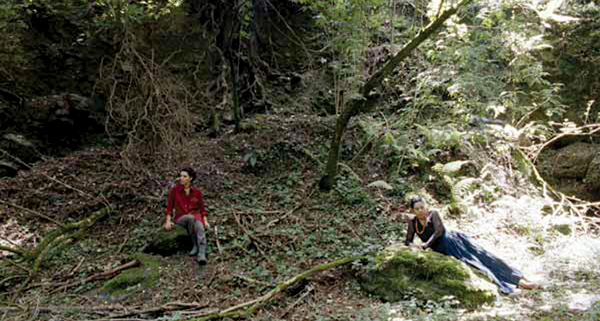
My seven trips to Argentina over the past eight years began when the Buenos Aires branch of FIPRESCI, the international film critics organization, brought me there to give some lectures in the fall of 2000. The couple who became my host and hostess, critics Quintín and Flavia de la Fuentes, invited me back half a year later after Quintín became director of the Buenos Aires Festival of Independent Film, a remarkable event sponsored by the city every April. Quintín held the job for four years, and it quickly became, to my knowledge, the only festival to be organized socially as well as intellectually around the principles of film criticism. The programming gave as much attention to older films (especially difficult-to-see classics imported from the Cinémathèque Française by Bernard Benoliel, such as Rossellini’s sublime India) as to new ones, and the books they published, starting with a translation of my own Movie Wars: How Hollywood and the Media Limit What Films We Can See, tended to be polemical interventions. Read more
From the Chicago Reader‘s blog, the Bleader. — J.R.
Holiday Jitters
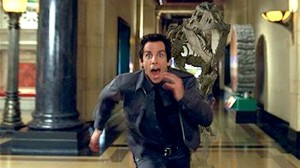
Allied Advertising recently informed me that the Ben Stiller comedy Night at the Museum is being previewed only to the daily press, not to weekly reviewers — which naturally raises the question of whether the company in question (Twentieth Century Fox) is deciding in advance that we weekly reviewers won’t like this release. Whether that’s the meaning of their strategy or not, it does show a kind of uncertainty that is much more general among the so-called majors. For instance, Warner Brothers has at this pointed shifted the Chicago opening date of Clint Eastwood’s Letters From Iwo Jima several times, with the result that it’s bounced on and off my ten-best list according to whether it’s opening here in 2006 or 2007. New York and Los Angeles reviewers get to consider Flags of Our Fathers and Letters From Iwo Jima as part of the same package; Chicago reviewers don’t.
I differ from some of my local colleagues in refusing to consider 2007 releases for my 2006 list just because many of the film companies persist in treating Chicago as a cow town in contrast to New York and Los Angeles — both of which will be premiering Letters from Iwo Jima this year. In
Read more
Here are some links to some pieces of mine that are available online elsewhere, in chronological order. Many of them include various lists of their own. — J.R.
10 Favorite Offbeat Musicals (March 2006):
http://www.dvdbeaver.com/film/articles/10_offbeat_musicals.htm
Ten Overlooked Noirs (April 2006):
www.dvdbeaver.com/film/articles/noir.htm
A Dozen Eccentric Westerns (June 2006):
http://www.dvdbeaver.com/film/articles/westerns.htm
Ten Neglected Science Fiction Movies (August 2006):
http://www.dvdbeaver.com/film/articles/sci-fi.htm
Ten Overlooked Fantasy Films on TV (and Two That Should be Available) (October 2006):
www.dvdbeaver.com/film/articles/fantasy.htm
A Dozen Undervalued Movie Satires (January 2007):
http://www.dvdbeaver.com/film/articles/dozen_undervalued_movie_satires.htm
Eleven Treasures of Jazz Performance on DVD (April 2007):
http://www.dvdbeaver.com/film/articles/eleven_treasures_of_jazz_on_dvd.htm
18 Thrillers You Might Have Missed… (July 2007):
www.dvdbeaver.com/film/articles/18_thrillers_you_might_have_missed.htm
Ten Underappreciated John Ford Films (December 2007):
www.dvdbeaver.com/film/articles/ten_underappreciated_john_ford_films.htm
My Dozen Favorite Non-Region-1 Box Sets (June 2008):
www.dvdbeaver.com/film/articles/dozen_favorite_nonR1_boxsets.htm
My Dozen Favorite Non-Region-1 Single-disc DVDs (November 2008):
www.dvdbeaver.com/film/articles/dozen_favorite_nonR1_single-disc.htm
Trial and Era (on Jim McBride’s early films) (posted April 3, 2009):
http://www.artforum.com/film/id=22423
The Consequences of Fame (on Roman Polanski’s arrest, posted Sept. 19, 2009):
http://roomfordebate.blogs.nytimes.com/2009/09/29/the-polanski-uproar/#jonathan
Tony Tony Tony (on The Imaginarium of Dr. Parnassus, posted December 23, 2009):
http://www.artforum.com/film/id=24395
Great 30s Movies on DVD (…and a few more that should be available) (February 2010):
www.dvdbeaver.com/film/articles/great_30s_movies_on_dvd.htm
Too Many Greats Ignored (on the Oscars, posted March 4, 2010):
http://roomfordebate.blogs.nytimes.com/2010/03/04/do-the-oscars-undermine-artistry/#jonathan
Gertrud and Light in August (posted October 26, 2010):
www.criterion.com/current/posts/1635-gertrud-and-light-in-august Read more
From the Chicago Reader (September 1, 2006). — J.R.
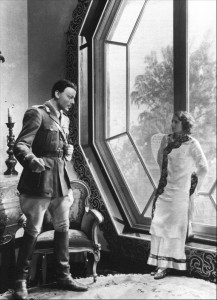
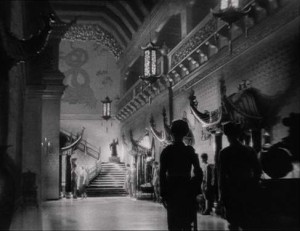
Frank Capra’s very atypical drama about an American missionary (Barbara Stanwyck) taken prisoner by a Chinese warlord (Nils Asther) is not only his masterpiece but also one of the greatest love stories to come out of Hollywood in the 30s — subtle, delicate, moody, mystical, and passionate. Joseph Walker shot it through filters and with textured shadows that suggest Sternberg; Edward Paramore wrote the script, adapted from a story by Grace Zaring Stone. Oddly enough, this perverse and beautiful film was chosen to open Radio City Music Hall in 1933; it was not one of Capra’s commercial successes, but it beats the rest of his oeuvre by miles, and both Stanwyck and Asther are extraordinary. With Walter Connolly and Lucien Littlefield. 89 min. Also on the program: episode eight of the 1938 serial The Spider’s Web. Sat 9/2, 8 PM, LaSalle Bank Cinema.
 Read more
Read more
























